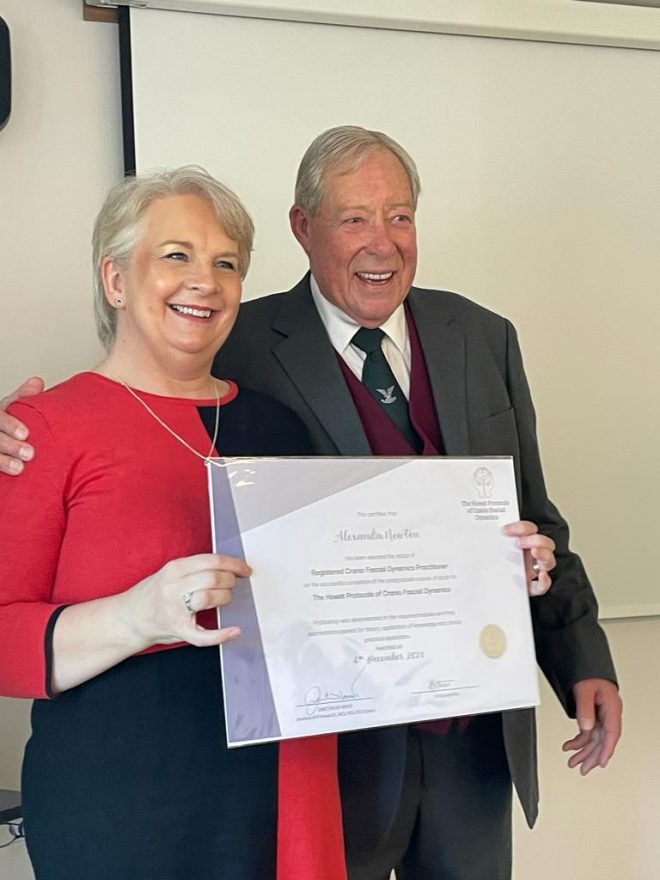
Clinic News
As we start to enjoy the longer sunnier days and an abundance of bank holidays, you will want to get more active in the garden and outdoors. Remember if you've not done much for the last few months build up slowly and mix your activities mainly in the garden - choose 2 or 3 jobs and spend half an hour or so at each then move to the next one - rotate around using different groups of muscles so you don't overdo it. It's normal to ache after activity but don't resume the same action until your body has recovered and healed.
PLEASE NOTE WE WILL BE CLOSED ON SATURDAY 6TH MAY BUT OPEN ON MONDAY 8TH MAY FROM 10:00hrs. Alex and Jenny will be running a short clinic on the Monday to ensure everyone gets the treatment they need.
April has been a busy month for us -the team were joined by three other clinics to renew their First Aid At Work qualification. There were 12 delegates and it was a great team-building exericses providing us with an essential skill in an emergency. The instructor Ruth, was also able to refresh us on the use of the defibrillator - did you know we have one sited on the outside of our building? This was a big part of our 25th-year anniversary celebrations where we raised money to purchase this in 2018. As yet it has not been used thankfully but it is reassuring to be prepared and be able to act in those life-saving minutes.
Erin and Luke have been out an about in the community observing different professions as part of their post-graduate training programme - They both spent the day with Steve Bailey at The Long Eaton Foot knee and back clinic. Erin then spent the day at the Stapleford Health Centre observing Health Visitor Cat, doing the six-week and one-year reviews with babies.
Alex scooted down to Oxford for a long-awaited graduation luncheon to collect her certificate for her postgraduate course as a Registered Cranio Fascial Dynamics Practitioner with the first cohort of 15 graduates embracing this technique within their clinics.
As our tree fundraising year comes to a healthy conclusion, the current total is £4365.21. We do have a few memorabilia bags and cookbooks left for purchase in reception so grab yours quickly before they are all gone. Alex will be liaising with Broxtowe Borough Council now to plan for the tree planting in November - watch this space for further information.
This month we talk about all-important joint health so check out our advice and reduce the risk of injuries over the summer.
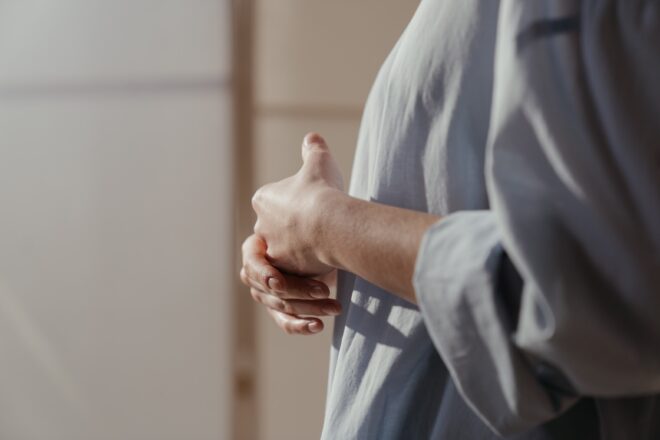
Joints Cracking
We’ve all heard our parents say “Don’t crack your knuckles, it’s bad for you”, but is it? The ‘popping’ sound is called crepitus and it happens when air bubbles are released from the joint spaces. It is extremely common for our joints to crack, especially as we grow older, so typically it’s not something to worry about.
As we age, our joints tend to make more noise because our cartilage wears down making the surface rougher when these rub against each other. The way you sleep, walk, move, and do daily activities has an effect on how often your joints crack but everyone will experience this at some point in their life.
The myth that cracking your knuckles causes arthritis is completely erroneous. There is no scientific study that proves that there is a relationship between these two. However, according to the US Anatomy and Physiology Instructors’ Cooperative, which examined 300 knuckle crackers, while no direct connection was made between joint cracking and arthritis, those who habitually did cracked their knuckles, showed soft tissue damage and loss of grip strength.
There are cases where this sound can indicate more, but only if accompanied by swelling and pain. As long as it’s not painful, joint noise is okay. If the cracking comes with swelling or pain, then it’s the time to see a chiropractor or a doctor.
In some cases, people like to crack their back and neck but there is a right way to do this and a wrong way to do this. If you crack these too forcefully or too often, it can be very harmful to your health because you can pinch the nerves in these areas making it an extremely painful experience. In some cases, the pain can make it impossible for you to move.
In order to prevent any long-term damage, it’s advisable to visit a local chiropractor to help stabilise the joint which will stop you feeling the need to do the cracking yourself.
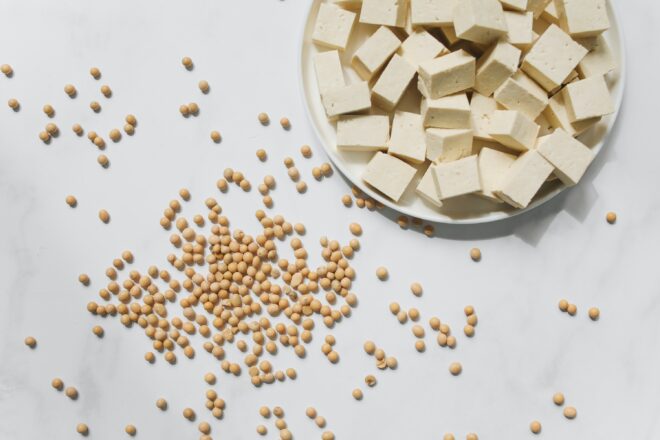
The Importance Of Protein In Your Diet
While most people will monitor their calorie, sugar and salt intake, it is essential to be monitoring your protein intake to ensure you are providing your body with the essential elements it needs to maintain and fuel. It is known that protein should be involved in your daily health maintenance plan, it is especially important for growth and development in children, teens, and pregnant women. Here is some more information about the importance of protein and how it can be easily incorporated into your diet.
Build: With our hair and nails mostly comprised of protein, it is a key building block of bones, cartilage, and skin.
Repair: Every cell in the human body contains protein. The basic structure of protein is a chain of amino acids, meaning the human body needs protein in your diet to help the body repair cells and make new ones.
Digest: About half the dietary protein that you consume each day goes into making enzymes, which aid in digesting food and making new cells and body chemicals.
Regulate: Protein plays an important role in hormone regulation, especially during the transformation and development of cells during puberty.
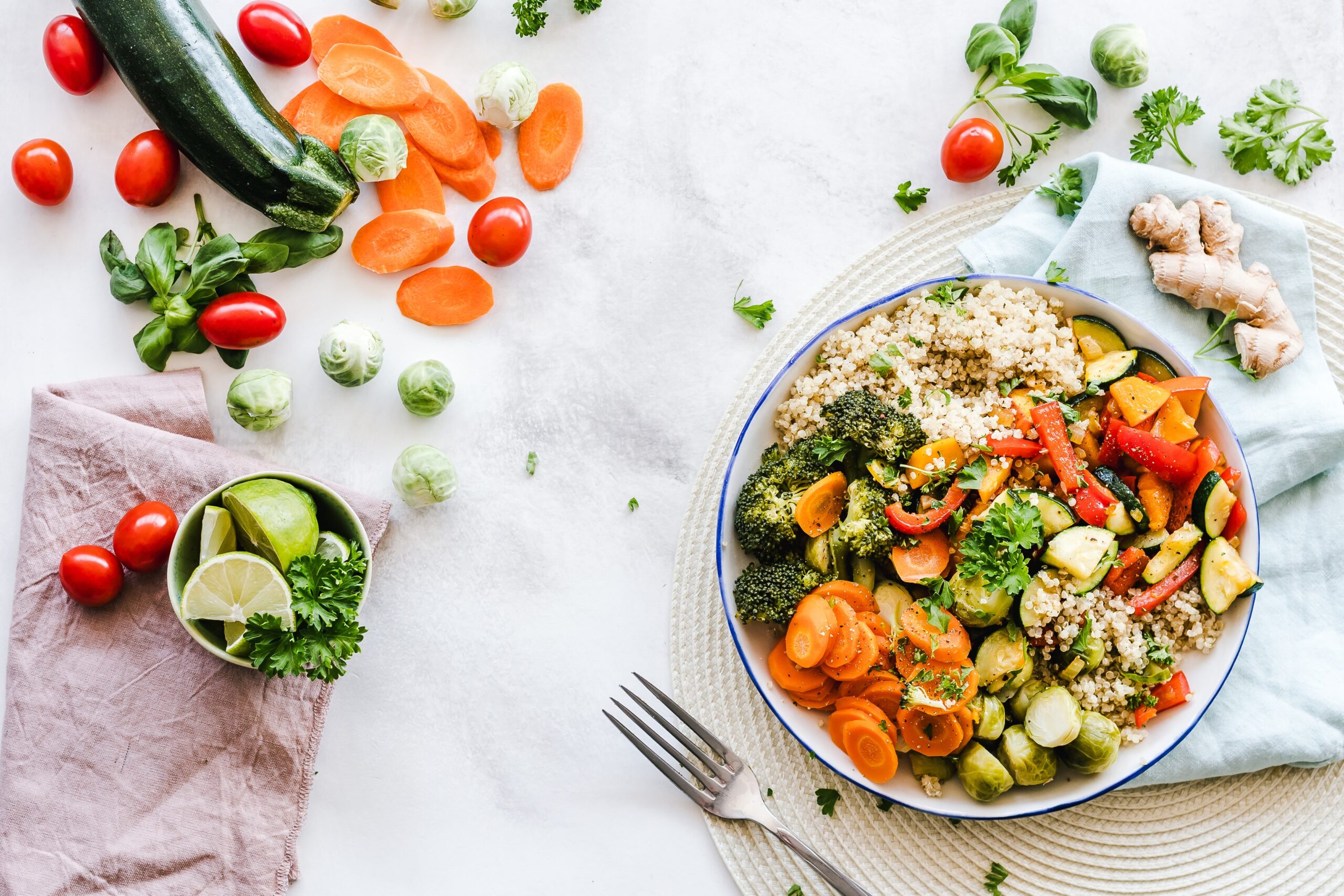
Protein can be easily incorporated into your diet by being aware of it’s nutritional values. Different foods contain different amounts of essential amino acids; Animal products (such as chicken, beef or fish and dairy products) have all of the essential amino acids and are known as ‘complete’ protein.
Soy products, quinoa and the seed of a leafy green called amaranth (consumed in Asia and the Mediterranean) also have all of the essential amino acids. Plant proteins (beans, lentils, nuts and whole grains) usually lack at least one of the essential amino acids and are considered ‘incomplete’ proteins.
Best food sources of protein are:
lean meats: beef, lamb, veal, pork, kangaroo
poultry: chicken, turkey, duck, emu, goose, bush birds
fish and seafood – fish, prawns, crab, lobster, mussels, oysters, scallops, clams
eggs
dairy products: milk, yoghurt (especially Greek yoghurt), cheese (especially cottage cheese)
nuts (including nut pastes) and seeds – almonds, pine nuts, walnuts, macadamias, hazelnuts, cashews, pumpkin seeds, sesame seeds, sunflower seeds
legumes and beans: all beans, lentils, chickpeas, split peas, tofu.
Some grain and cereal-based products are also sources of protein but are generally not as high in protein as meat and meat-alternative products.
There are plenty of simple food recipes including some of these ingredients that will help you hit your daily protein goal. Nuts and seeds are fantastic in salads, with vegetables and served on top of curries. Try toasting some pine nuts or flaked almonds and putting them in your green salad Greek yoghurt is a protein-rich food that you can use throughout the day. Add some to your favourite breakfast cereal, put a spoonful on top of a bowl of pumpkin soup or serve it as a dessert with some fresh fruit.
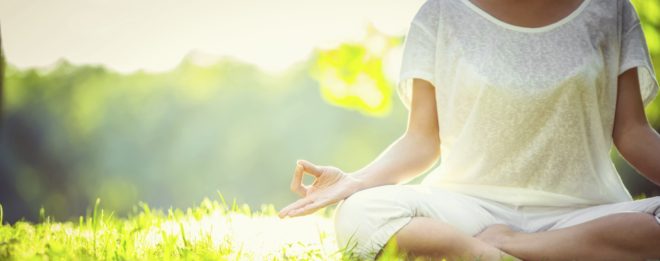
The best exercises for arthritis sufferers
If you suffer from arthritis, or very stiff joints, exercise may be the last things you want do.
However… getting out into the fresh air and doing some low intensity, aerobic exercise can be extremely beneficial and help to prevent stiff joints.

Some sports can help to build up your core muscles, and the muscles which support your joints, and also reduce joint inflammation. These include:
- Yoga
- Pilates
- Swimming
- Cycling
- Walking
Opt for gentle movements and light stretches and build up slowly, the gentle stretching involved in each exercise can help you to maintain mobility and movement.
Be careful… try and avoid any hot or power yoga as this can end up putting excessive pressure on your joints.

Try this… Swimming can be particularly good as the buoyancy of the water can help relieve any pressure on your joints while you exercise, giving you that extra supportive barrier which will help cushion any inflamed joints.
Or this…. Cycling also acts in a similarly supportive manner as is helps you avoid the pounding of high-impact aerobic activities. A gentle cycle can help to strengthen your leg muscles that support your joints. So whether it’s on an exercise bike or in the great outdoors, cycling can be an effective way of staying fit while making sure your joints aren’t placed under too much pressure.

If you are experiencing a severe flare up it is best to rest for a couple of days before part taking in any kind of physical activity. Remember, it’s not a race. Don’t push your body to do anything if you feel you can’t manage it.
If you feel like it, you could simply go for a walk, but make sure not to push yourself too much if you are in pain. The best thing you can do is to listen to your body.
Remember… pain is your body’s way of telling you to stop, so always go at your own pace.

Bone Health
Looking after your bones is important because they play several roles in the body. As well as providing structure, they also protect organs, anchor muscles and store calcium. Though we hear a lot about the importance of building strong and healthy bones during childhood and adolescence, bone health can be protected throughout adulthood.
Why is it important to look after your bone health during adulthood?
Our bodies continuously make new bone and break down old bone. When we’re young, the body makes new bone faster than it breaks down the old bone leading to increased bone mass. With age, we begin to lose more bone mass than we gain.
There are several condition and diseases that can affect our bones, including osteoporosis. This is a common condition where bones become weak and brittle, which affects over 3 million people in the UK. Looking after our bones can be an important part of preventing such conditions.
What can affect bone health?
There are several factors that can affect bone health, some of which are related to lifestyle.
An example of this is physical activity. Exercise is important for maintaining bone strength and being less physically active can place you at a higher risk of developing conditions like osteoporosis.
Another example is diet. Calcium is important for maintaining bone health and not getting enough calcium can contribute towards diminishing bone density.
It has also been suggested that smoking and tobacco are associated with an increased risk of weak bones.
However, some factors that affect bone health are not related to lifestyle.
For example, women can face dramatic bone loss during menopause due to oestrogen levels dropping.
Keeping your bones healthy
There are some simple steps that can be taken to prevent or slow bone loss.
- Incorporate calcium into your diet
There are plenty of ways to ensure you are getting enough calcium. Many foods are rich in calcium, including dairy products, almonds, edamame, and leafy greens. However, if it is hard to incorporate calcium through your diet, there are supplements that could help.
Vitamin D is important for health bones because it helps the body absorb calcium. It can sometimes be difficult to get enough vitamin D through diet, even though there is vitamin D in oily fish, egg yolks, and red meat. Like calcium, it is possible to take supplements to ensure you are getting enough. Sunlight can also trigger the production of vitamin D.
Staying active is important for looking after your bones, but weight-bearing exercises are particularly good. This can include walking and jogging, but also resistance can boost bone strength.
Because lifestyle is an important factor for looking after your bones, it is advised that you avoid smoking. Similarly, be mindful of your alcohol intake.
We treat all conditions that affect any muscle or joint in your body, from your head to your little toe! One of the most common complaints that we treat is back pain and Chiropractic is recommended by the government authority, the National Institute for Clinical Excellence (NICE) for acute and chronic back pain. Some of the other conditions that we treat are neck and headache, shoulder pain, leg and hip pain, knee and foot pain, sciatica and arthritis. Our registered Chiropractors all have at least five years of training. Treatment costs can be covered through most health insurers. If you are in any doubt, we are always very happy to talk with you on the phone to see if your condition will respond well to Chiropractic treatment. Call the clinic now to arrange an appointment time that works for you. 0115 9225085 If you would like to opt-out of receiving these newsletters please follow the unsubscribe link below, email alex@beestonchiropractic.co.uk or let us know at your next appointment.









